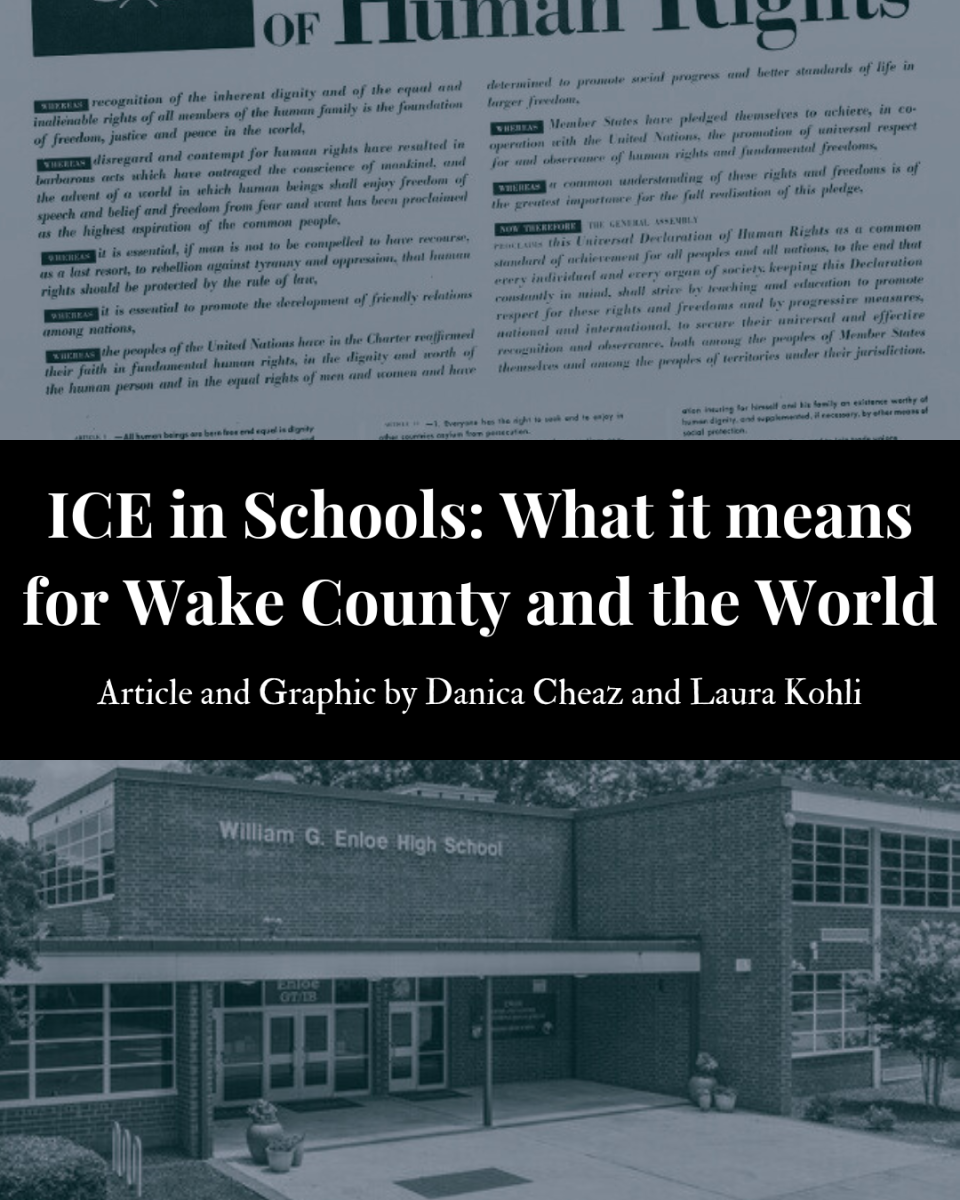On Jan. 21, President Trump signed an executive order allowing Immigration and Customs Enforcement officers to act in “sensitive spaces.” This legally allows ICE raids in schools that would consist of searching students for immigration status and possible detention of those without proper documentation, eliciting an outcry among families, teachers, and administrators alike.
President Trump has long been running on an anti-immigration platform, pushing to crack down on the number of undocumented people in the United States. His 2016 plans to ‘build a wall’ have not come to fruition, but the Trump administration is taking charge again this term. Mass deportations have already started in major cities, mostly affecting Latino immigrants.
Potential ICE raids in schools could deprive undocumented students or students with undocumented parents the chance to a proper education. This is both unconstitutional and a violation of human rights according to the UN. The 14th Amendment has set a precedent of protecting public education through its Equal Protection Clause, which was used to support the 1954 Supreme Court case Brown v. Board of Education. The Supreme Court ruled that “separate but equal” was in fact a violation of the Equal Protection Clause.
“We conclude that in the field of public education the doctrine of ‘separate but equal’ has no place. Separate educational facilities are inherently unequal. Therefore, we hold that the plaintiffs … are, by reason of the segregation complained of, deprived of the equal protection of the laws guaranteed by the 14th Amendment.”
The Supreme Court has not made any ruling about ICE in schools, however, this policy change could be determined as a violation of the 14th Amendment because it deprives some students of equal protection under the law. It’s important to acknowledge that according to the Supreme Court, it is not a crime for an undocumented immigrant to continue to stay in the United States. Furthermore, ICE raids in schools have the potential to disrupt the learning process for every student by creating an uncomfortable and tense learning environment.
In the aftermath of the federal decision, school districts have scrambled to update and publish policies regarding ICE and law enforcement in school. In Wake County specifically, the policy states that principals don’t need to allow officers inside the school without a federal judicial warrant. The county has assured families that schools will not ask students for immigration status, however, many families are feeling the effects of fear among the community.
Mr. West, a Spanish teacher at Enloe who notably teaches two heritage Spanish classes meant for native Spanish speakers, says that since the inauguration, he’s noticed a mood shift in his students, “I would actually say that, not just in my heritage classes, since Trump has been elected, the overall mood at this entire school has been impacted … all teachers and students, whether they’re in favor or against [the president], the mood of the school is different.”
Specifically referencing the possibility of ICE in schools, West references an experience he had right after the executive order was signed, “Right after that executive order, we had a practice code red drill … When we had that practice code red drill, the policy is to shut everything down, lock the door and wait for authorities to say it’s ok to [resume class]. At one point someone put their hand on the door handle just to see if it was locked, and at that point two people in my class … almost burst into tears” He continues, “My assumption is that they weren’t afraid of the drill, but that moment of realization of wait, I’m trapped I can’t get away, there are authority figures at the door … I know that there is fear among those students.”
West states that he doubts ICE will be able to come specifically to his Spanish and heritage classes, “If a directive were to come that [ICE] were to come directly to my classroom, they would be setting themselves up for a huge lawsuit … It’d be so easy to prove racial profiling.” He goes on to say, “To avoid the lawsuit, they’d have to go classroom by classroom, and find every single person’s immigration status.”
West concludes by saying, ultimately, Wake County’s specific policy will have the final power, “I have on my own been educated on the difference between a signed warrant and a warrant that’s not signed by a judge, and what I can do as a result of that … In terms of Wake County’s response, I’m going to do what the county says.”
Works Cited









